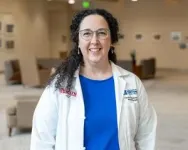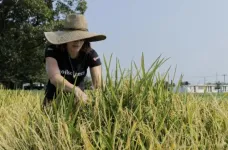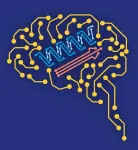(Press-News.org) Scientists at Huntsman Cancer Institute at the University of Utah (the U), the National Cancer Institute-designated cancer center for the Mountain West, have made a significant breakthrough in predicting the prognosis of triple-negative breast cancer (TNBC), a particularly aggressive disease. Their research, published in JCO Precision Oncology as part of the TOWARDS study, has led to the development of a new mechanism that accurately forecasts the aggressiveness of TNBC. This advancement could revolutionize the way doctors treat TNBC, allowing them to identify higher-risk patients and tailor precise treatments.
Currently, TNBC lacks reliable methods to predict recurrence after treatments like chemotherapy and surgery. Unlike other breast cancers, TNBC is challenging to treat because its tumor cells lack estrogen receptors, progesterone receptors, and high levels of HER2/neu protein, according to experts at the National Institutes of Health. This often results in a higher likelihood of relapse after treatment.
Researchers used a patient-derived xenograft (PDX) model, where biopsies of tumors from patients were implanted into mice to grow human tumors. Alana Welm, PhD, senior author of the study, senior director of basic science at Huntsman Cancer Institute, and professor of oncological sciences at the U, highlights the significance of this method noting that it allows for an early and accurate assessment of the cancer’s aggressiveness.
Cindy Matsen, MD, co-first author of the study, leader of the Breast and Gynecologic Disease Center at Huntsman Cancer Institute and associate professor in the Department of Surgery at the U, emphasizes the direct impact this research could have on patient care. She describes the study as highly relevant to addressing a major challenge in breast cancer treatment, with the potential of creating more personalized treatment plans for patients with recurrent TNBC.
The study’s mechanism was more accurate than existing methods in predicting whether TNBC will recur. Welm notes, "By implanting a biopsy of the tumor into a PDX, we can discover how aggressive the cancer is. We hope to extend our new findings to improve the current standard tests used to predict whether the patients’ cancer will recur."
“This study addresses a very pressing problem in the clinic,” says Christos Vaklavas, MD, co-first author of the study, head of the breast cancer clinical program at Huntsman Cancer Institute, and associate professor of internal medicine at the School of Medicine at the U. “PDX models help us not only predict with greater accuracy who will relapse and who will not, but also to treat recurrences with greater precision.”
Matsen also underscored the practical benefits of the study. In the second phase, now underway as a clinical trial, scientists are testing specific drugs on PDX models. If these therapies prove effective, results will be shared with physicians, providing them with valuable insights on how to guide treatment decisions.
The study’s results are crucial: if a tumor grows in the PDX model, it often indicates a highly aggressive cancer, which is significantly harder to treat. Matsen stressed the urgency of improving treatment strategies, noting the devastating impact of the cancer recurrence.
“This study gives us the opportunity to provide hope and to save more lives,” Matsen says.
Other Huntsman Cancer Institute scientists who contributed to the study include Kenneth Boucher, PhD, and Bryan Welm, PhD. This study was supported by the Department of Defense Breast Cancer Research Program, the National Institutes of Health/National Cancer Institute, including P30 CA02014, and Huntsman Cancer Foundation.
About Huntsman Cancer Institute at the University of Utah
Huntsman Cancer Institute at the University of Utah is the National Cancer Institute-designated Comprehensive Cancer Center for Utah, Idaho, Montana, Nevada, and Wyoming. With a legacy of innovative cancer research, groundbreaking discoveries, and world-class patient care, we are transforming the way cancer is understood, prevented, diagnosed, treated, and survived. Huntsman Cancer Institute focuses on delivering the highest standard of care and the most advanced treatments, ensuring world-class cancer care is available to all communities in the area we serve. We have more than 300 open clinical trials and 250 research teams studying cancer at any given time. More genes for inherited cancers have been discovered at Huntsman Cancer Institute than at any other cancer center. Our scientists are world-renowned for understanding how cancer begins and using that knowledge to develop innovative approaches to treat each patient’s unique disease. Huntsman Cancer Institute was founded by Jon M. and Karen Huntsman.
END
SEQUIM, Wash.—Officials gathered at the Sequim campus of the Department of Energy’s Pacific Northwest National Laboratory today to dedicate DOE’s first hybrid-electric research vessel, RV Resilience.
The event marks the start of a new era of marine energy research at PNNL-Sequim, part of DOE’s Office of Science national laboratory system and Resilience’s new home port. Speakers at the dedication included U.S. Sen. Maria Cantwell, U.S. Rep. Derek Kilmer, Washington State Rep. Steve Tharinger and representatives from DOE and PNNL.
“DOE is focused on ...
ROCHESTER, Minn. — About 8 to 10 million Americans over age 40 have an overabundance of cloned white blood cells, or lymphocytes, that hamper their immune systems. Although many who have this condition — called monoclonal B-cell lymphocytosis (MBL) — do not experience any symptoms, a new study shows they may have an elevated risk for several health complications, including melanoma, a form of skin cancer. The findings, by Mayo Clinic researchers, are published in a new paper in the Journal ...
PHILADELPHIA— The vision of people with a rare inherited condition that causes them to lose much of their sight early in childhood was 100 times better after they received gene therapy to address the genetic mutation causing it. Some patients even experienced a 10,000-fold improvement in their vision after receiving the highest dose of the therapy, according to researchers from the Perelman School of Medicine at the University of Pennsylvania who co-led the clinical trial published in The Lancet.
“That 10,000-fold improvement ...
After the treatment, one patient saw her first star. Another saw snowflakes for the first time. Other patients were newly able to navigate outside of the home or to read the labels on their child’s Halloween candy.
The cause of these seemingly miraculous improvements? A gene therapy developed by University of Florida scientists, which restored useful vision to most patients with the rare, inherited blindness known as Leber congenital amaurosis type I, or LCA1, in a small trial.
Those who received the highest dose of the gene therapy saw up to a 10,000-fold improvement ...
Near the Florida-Georgia border, the Chattahoochee and Flint rivers meet and become the Apalachicola River, which carries freshwater and nutrients downstream to the Apalachicola Bay.
New research led by FAMU-FSU College of Engineering Assistant Professor Ebrahim Ahmadisharaf examined how drought and water volume in the Lower Apalachicola River watershed affect nitrogen and phosphorous, crucial nutrients for a healthy aquatic ecosystem. The study was published in Water Research.
“In watershed systems like this, that are subject to regulations upstream, knowing how the ecosystem reacts to changes helps us manage it effectively,” said Ahmadisharaf, ...
Rice and spinach are staples for babies’ and young children’s diets, but toxic metals and metalloids found in those foods can cause severe health impacts.
In particular, heavy metals such as cadmium, lead, mercury, and metalloid arsenic could delay brain development in babies and young children.
In new research published in the academic journal Environmental Geochemistry and Health, University of Delaware scientists have found that flooded rice fields tend to contain higher amounts of arsenic and lower amounts of cadmium. The drier those rice fields are, the lower the amounts of arsenic and the higher the amounts of cadmium. However, the higher cadmium is lower ...
Using hypertonic saline nasal drops can reduce the length of the common cold in children by two days, according to a study that will be presented at the European Respiratory Society (ERS) Congress in Vienna, Austria [1]. They can also reduce the onward transmission of colds to family members.
The results of the ELVIS-Kids randomised controlled trial were presented by Professor Steve Cunningham from Child Life and Health, University of Edinburgh, UK.
He said: “Children have up to 10 to 12 upper respiratory tract infections, what we refer to as colds, per year, which ...
Vaccination against respiratory syncytial virus for adults over 60 is likely cost-effective by preventing illness, hospitalizations, lost quality of life and deaths, according to new research.
The study conducted by researchers at the University of Michigan and the U.S. Centers for Disease Control and Prevention and published in the journal Vaccine, evaluated newly approved RSV vaccines: Arexvy, manufactured by GSK, and Abrysvo, manufactured by Pfizer. The study did not include a third approved vaccine, Moderna's mRESVIA.
The vaccines are now available to adults 60 and older. The CDC recommends a single ...
The Ecological Society of America (ESA) presents a roundup of seven research articles recently published across its esteemed journals. Widely recognized for fostering innovation and advancing ecological knowledge, ESA’s journals consistently feature illuminating and impactful studies. This compilation of papers explores the impact of rising temperatures on pathogens, dynamics of predatory seabirds and their penguin prey in Antarctica, factors determining the speed of coral reef recovery from disturbance and more.
From Ecology:
Some pathogens can’t ...
Researchers at Auburn University, in collaboration with scientists from the University of Basel and ETH Zurich, have made a groundbreaking advance in the fight against cancer. The team, led by Dr. Rafael Bernardi, Associate Professor of Biophysics in the Department of Physics, has developed a novel approach integrating artificial intelligence (AI) with molecular dynamics simulations and network analysis to enhance the prediction of binding sites on the PD-L1 protein. This breakthrough promises to accelerate the development ...






